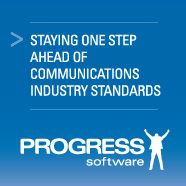According to the company, System Center 2012 places control over physical, virtual and cloud environments in one console. Other features include increased cloud capacity with unlimited virtualization; a transparent, suite-based model which facilitates both deployment and purchase; and full private cloud functionality rolled into each System Center license.
Microsoft's latest move pits the company squarely against virtualization expert VMware in the systems management arena. Recall, that firm had launched its vCenter Operations suite back in March. But the larger picture, one that transcends both companies, is the notion of a cloud OS. The concept is on track to become this year's cloud buzz topic, but some analysts expect Rackspace/NASA project OpenStack to steal the thunder right out from under companies like Microsoft. For example, back in October, tech analysis firm Ovum posted its opinion that OpenStack is "gaining strength slowly but surely." According to Ovum, despite some near term challenges, OpenStack boasts a number of strengths, like quick development cycle; a versatile open-source model; numerous commercial distributions; and influential supporters, such as Cisco and HP. The OpenStack community, which boasts some 140 companies from around the world, has gotten that much larger, after AT&T joined up on Jan. 9.
Speaking of Microsoft…
In last month's Newswatch, we examined how Microsoft's aggressive strategy to amass media partnerships is entrenching the Xbox 360 as the premier gateway to the connected living room. In that article, I referenced a September 2010 prediction made by Informa that it would be a connected TV platform taking centerstage and not any single device. Just when it seemed like Microsoft would turn that forecast on its ear, Google TV announced its own string of partnerships. From the 2012 Consumer Electronics Show in Las Vegas, Google revealed it had struck up relationships with TV manufacturers LG and Samsung and chipmakers Marvell and MediaTek, as well as strengthened its existing relationship with yearlong partner Vizio.
But what will best drive Google TV's bid for America's living rooms is its partnership with cloud gaming service OnLive, announced on Jan. 11. The integration of console-quality gaming into Google TV—the first for any television platform—positions Big G head-to-head against the 360.
A Google TV spokesperson we contacted demurred on the issue of competition with the software juggernaut, saying instead:
"We're really focused on growing the Google TV platform and continuing to iterate and improve it over time rather than what other companies are doing in this space. OnLive is a great partner and we're excited to bring their app to Android Market on Google TV. We now have more than 150 apps which developers have specifically built for TV with thousands more Android apps from the mobile world to enrich your living room TV experience coming every day to Google TV."
Which raises the question, what does this mean for cablecos? Google TV, as channeled through our source, explained, "We're open to working with cable providers to help bring a consumer experience that fits with their authenticated model. We've done this with HBOGo and the response from our users has been really positive."
By way of explanation, he went on to add:
"With Google TV, you have access to over 80,000 movies and television episodes through Google TV, including everything you get with your pay TV subscription. Google TV aims to make it easier for you to find the movies and shows you want to watch as well as to bring the millions of channels available on the web to the TV. Smart TVs are building on top of an existing technology, not replacing it—in the same way that smart phones didn't replace telephones, they optimized them and made them more useful. That's what we hope to do with Google TV."
Read: while opportunities exist for CSPs—likely similar to those afforded by the HbbTV platform—the threat posed by the, as yet, untamed OTT remains considerable.
As if Google's gaming TV news wasn't enough to up the stakes of the living room brawl, LG Electronics announced a similar partnership—this one with streaming gaming outlet Gaikai—whereby the latter would integrate its cloud game offering into LG's Cinema 3D TV 2012 product line. While it's clear that game-integrated TVs can't replace the Xbox outright, it still remains to be seen whether console or platform will emerge as the gatekeeper to the connected home.











